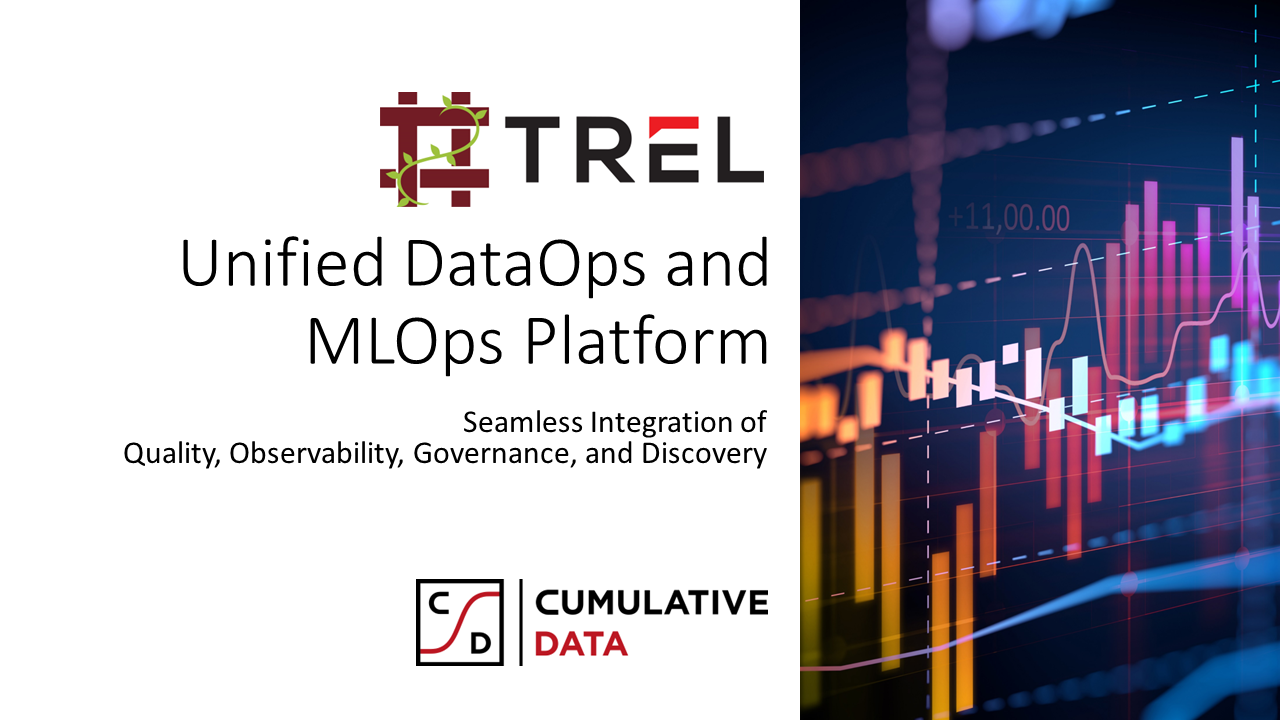Trel is a comprehensive DataOps and MLOps platform designed to empower data professionals in managing their production data pipelines and machine learning workflows. By providing intuitive abstractions and powerful automation capabilities, Trel enables teams to build robust, manageable, and observable data processes. Let’s explore who can benefit most from Trel and the key use cases it addresses across various industries and team sizes.
Target Users
- Data Scientists and ML Engineers: Trel offers tools to seamlessly transition experimental work into production-ready pipelines, allowing focus on deriving insights and building models while automating operational aspects.
- Data Engineers: Trel provides a unified platform to design, implement, and monitor complex data workflows across various technologies and data sources.
- Data Analysts: Analysts benefit from Trel’s data quality and observability features, ensuring they always work with reliable, up-to-date data.
- DataOps Teams: Trel offers a centralized platform to implement best practices in data governance, quality control, and pipeline automation. Trel’s self-healing pipelines reduce Mean-time-to-Resolve (MTTRv).
- CTOs, CDOs, and VPs of Data: Executive-level users gain visibility into data operations, ensuring compliance, cost-efficiency, and alignment with business goals.
Trel offers these professionals tools to seamlessly transition experimental work into production, design and monitor workflows, ensure data quality, implement best practices, and gain visibility into data operations.
Key Use Cases by Industry
- Financial Services Use Case: Regulatory Compliance and Risk Management
-
- Comprehensive Audit Trails: Detailed records of data access and transformations.
- Automated Policy Enforcement: Reduces risk of unauthorized data access.
- Advanced Data Quality Checks: Prevents errors in financial models and reports.
- Model Governance: Ensures transparency in algorithmic decision-making.
Example: For CLV prediction in banking, Trel ensures secure handling of customer data, documented model training, and explainable predictions for regulatory compliance.
- Healthcare and Life Sciences Use Case: Secure Patient Data Management and Clinical Trial Analysis
-
- Secure Data Handling: Enables HIPAA-compliant data processing.
- Data Lineage Tracking: Maintains chain of custody for sensitive data.
- Experiment Tracking: Supports reproducibility of clinical analyses.
- Scalable Data Processing: Handles large-scale genomic and imaging datasets.
Example: In drug discovery, Trel manages diverse data types, maintains version control of analysis scripts, and ensures reproducibility of results.
- Retail and E-commerce Use Case: Customer Lifetime Value (CLV) Prediction and Personalization
-
- Real-time Data Integration: Ingests customer interaction data continuously.
- Advanced Feature Store: Manages reusable customer features.
- Automated Model Retraining: Keeps CLV predictions accurate over time.
- A/B Testing Framework: Supports experimentation with personalization strategies.
Example: As shown in our CLV pipeline, Trel integrates transaction history, web analytics, and customer profiles to build and update CLV models, extendable to recommendation engines and churn prediction.
Key Use Cases by Team Size
- Small Teams (1-5 data scientists) Use Case: Automating DevOps and DataOps Tasks
-
- Automated Data Ingestion: Trel’s sensor system automatically crawls, classifies, and catalogs new data arriving in cloud storage like Amazon S3.
- Data Quality Management: Integration with tools like SodaCore for automated quality checks, reducing manual oversight.
- Simplified MLOps: Trel handles model versioning, deployment, and monitoring, allowing small teams to manage the full ML lifecycle efficiently.
- Collaborative Features: Centralized catalog and shared feature stores enable seamless knowledge sharing, crucial for small teams where each member often wears multiple hats.
Benefits for Small Teams:
-
- Reduced Operational Overhead: Automation of routine tasks allows team members to focus on high-value analysis and model development.
- Faster Time-to-Production: Turn-key integration with various storage and compute technologies accelerates the transition from experimentation to production.
- Enhanced Capabilities: Access to enterprise-grade features like data lineage tracking and advanced observability, typically beyond the reach of small teams.
- Mid-sized Teams (5-20 data scientists) Use Case: Scaling Data Operations and Enhancing Collaboration
-
- Experiment Tracking: Comprehensive versioning of datasets, code, and model artifacts ensures reproducibility and facilitates collaboration.
- Feature Store Management: Centralized feature creation and versioning streamlines model development and ensures consistency across projects.
- Advanced Observability: AI-powered natural language querying of pipeline metadata enables quick troubleshooting and insights.
- Schema Evolution Management: Tools to safely evolve data schemas without breaking downstream processes.
Benefits for Mid-sized Teams:
-
- Standardization: Trel helps establish and enforce best practices as the team and data operations grow.
- Efficient Collaboration: Shared artifacts and pipelines prevent silos and enable knowledge transfer between team members.
- Scalability: As data volume and complexity increase, Trel’s automation and governance features help maintain control and efficiency.
- Large Enterprises: For larger organizations, Trel offers enterprise-grade features for standardization, governance, and cross-platform data operations, helping maintain control over complex data ecosystems.
Trel as a Turn-key Solution
One of Trel’s key advantages is its nature as a turn-key solution that integrates seamlessly with various storage and compute technologies. Instead of requiring teams to piece together multiple tools for data cataloging, quality management, observability, and MLOps, Trel provides a unified platform that includes all these capabilities out-of-the-box. This integration significantly reduces setup time, minimizes potential compatibility issues, and provides a consistent interface for managing the entire data lifecycle.
Key Features Addressing Common Challenges
- Data Quality Management
- Feature Engineering and Management
- Experiment Tracking and Model Versioning
- Automated Model Retraining and Deployment
- Advanced Data Observability
- Reproducible Data Science
- Cross-Platform Data Operations
These features work in concert to enhance productivity, ensure data reliability, and support governance across various industries and team sizes.
By addressing these diverse use cases, Trel positions itself as a versatile platform that can significantly enhance the effectiveness of data teams across various industries and data maturity levels. Whether you’re a startup building your first production ML pipeline or an enterprise looking to streamline complex data operations, Trel offers a comprehensive solution to support your data science journey.
To experience these benefits firsthand, sign up for a 30-day free trial at trelcloud.com. For more information or to discuss how Trel can address your specific needs, please reach out to our team.



